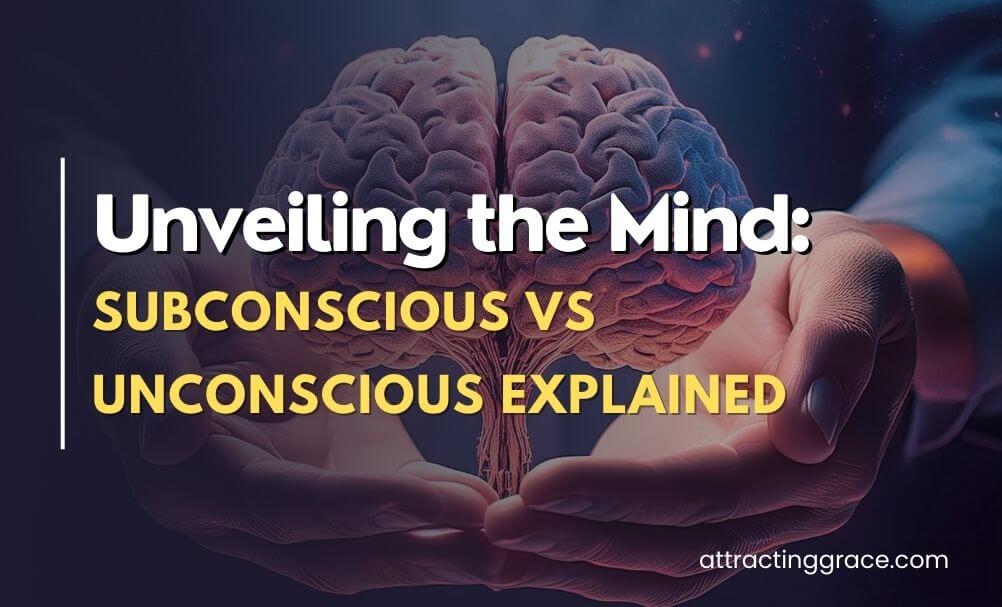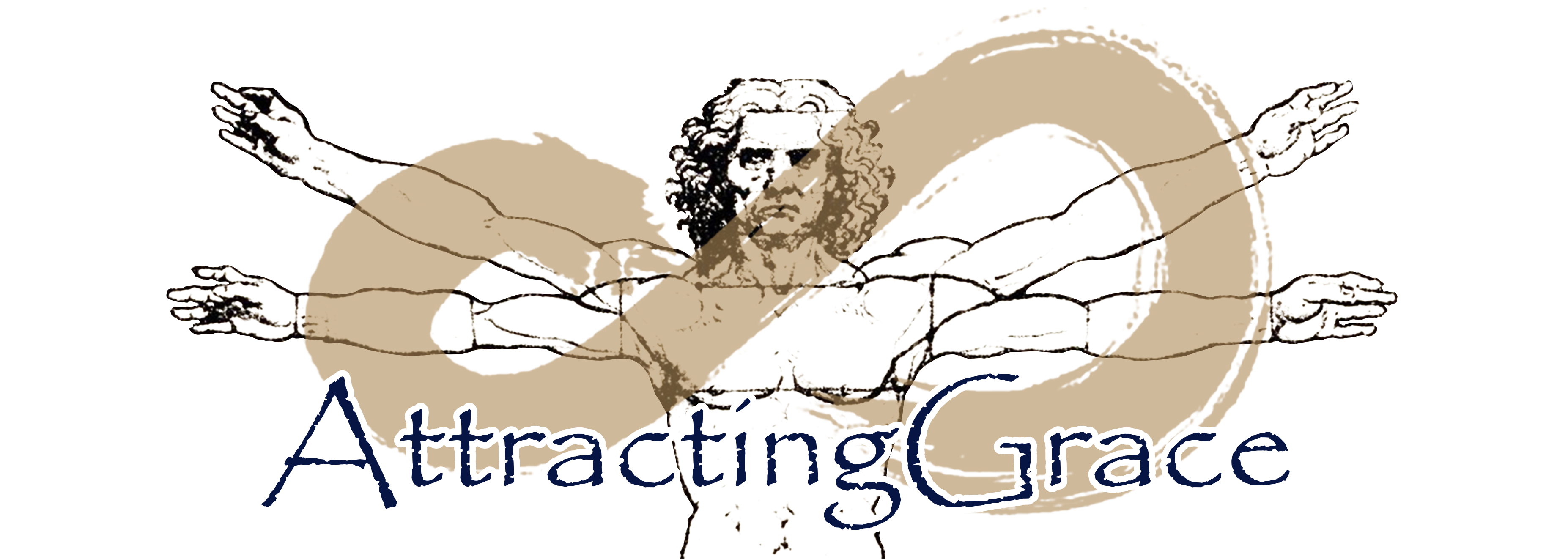
Our minds are complex and fascinating. Two important parts of the mind are the subconscious and the unconscious. Though often used interchangeably, they have different meanings and functions. Understanding these differences can help us better understand how our minds work and how they influence our behavior. In this blog post, we will explain the subconscious and unconscious, compare their functions, and explore how they affect our actions and thoughts.
Defining the Subconscious vs Unconscious
What is the Subconscious?
The subconscious mind is the part of our mind just below the surface of our conscious awareness. It holds information that we are not actively thinking about but can easily bring to mind if needed. For example, when you remember a phone number or a friend’s name, you are accessing your subconscious mind.
The subconscious mind plays a crucial role in our daily lives. It stores memories, habits, and learned behaviors. It helps us perform tasks automatically without needing to think about them, like tying our shoes or riding a bike.
What is the Unconscious?
The unconscious mind is deeper and harder to access than the subconscious. It contains thoughts, memories, and desires that are hidden from our conscious awareness. These can include repressed memories, forgotten experiences, and instinctual drives.
Sigmund Freud, a famous psychologist, introduced the concept of the unconscious mind. He believed that the unconscious mind influences our behavior and emotions, even though we are not aware of it. For example, childhood experiences stored in the unconscious can affect how we react to certain situations as adults.
Functions
Functions of the Subconscious Mind
The subconscious mind has several key functions:
- Storing Memories: The subconscious stores all our memories, from childhood to the present. It keeps track of everything we have learned and experienced.
- Habits and Routines: Our habits and routines are controlled by the subconscious mind. Once we learn a habit, like brushing our teeth, the subconscious takes over, allowing us to perform it automatically.
- Automatic Functions: The subconscious mind controls many automatic functions in our bodies, like breathing and blinking. We don’t need to think about these actions; they happen naturally.
Functions of the Unconscious Mind
The unconscious mind also has important functions:
- Repressed Memories: The unconscious mind stores repressed memories, which are memories that are too painful or traumatic for us to remember consciously.
- Instinctual Drives: Basic drives and instincts, like hunger, thirst, and sex, are stored in the unconscious mind. These drives influence our behavior without us being aware of them.
- Emotional Influences: The unconscious mind influences our emotions and feelings. For example, a repressed memory of a frightening event can cause anxiety or fear in certain situations without us knowing why.
Differences Between the Subconscious vs Unconscious
Awareness
One of the main differences between the subconscious and unconscious is our level of awareness:
- Subconscious: We are not actively aware of our subconscious mind, but we can easily access it. For example, we can recall a memory or bring a habit to mind without much effort.
- Unconscious: The unconscious mind is much harder to access. We are not aware of its contents, and it often requires special techniques, like therapy or hypnosis, to uncover unconscious thoughts and memories.
Accessibility
- Subconscious: Information in the subconscious mind is readily accessible. We can recall memories, habits, and learned behaviors when needed.
- Unconscious: Information in the unconscious mind is hidden and difficult to access. It often influences our behavior without us knowing it.
Control Over Behavior
- Subconscious: The subconscious mind helps us perform tasks automatically and efficiently. It controls our habits and routines, making our daily lives easier.
- Unconscious: The unconscious mind influences our behavior and emotions in ways we may not understand. It can drive us to act in certain ways based on repressed memories or instinctual drives.
Similarities Between the Subconscious vs Unconscious
Despite their differences, the subconscious vs unconscious minds have some similarities:
Influence on Behavior
Both the subconscious and unconscious minds influence our behavior, thoughts, and emotions. They shape how we react to situations and interact with others.
Storing Memories
Both parts of the mind store memories, though they do so differently. The subconscious holds memories we can easily recall, while the unconscious stores repressed memories that are harder to access.
Automatic Processes
Both the subconscious and unconscious minds control automatic processes in our bodies and minds. For example, the subconscious manages habits and routines, while the unconscious influences instinctual drives and emotional responses.
How They Influence Behavior
Subconscious Influence
The subconscious mind influences our behavior in many ways:
- Habits and Routines: Our daily habits and routines are controlled by the subconscious mind. These automatic behaviors make our lives easier and more efficient.
- Learned Behaviors: The subconscious stores learned behaviors and skills, allowing us to perform tasks without thinking about them.
- Emotional Responses: The subconscious influences our emotional responses to certain situations. For example, a pleasant memory stored in the subconscious can make us feel happy when we think about it.
Unconscious Influence
The unconscious mind also affects our behavior:
- Repressed Memories: Repressed memories in the unconscious mind can influence our reactions and emotions. For example, a repressed traumatic event can cause anxiety or fear in certain situations.
- Instinctual Drives: Basic drives and instincts stored in the unconscious mind influence our behavior. These drives can push us to act in certain ways without us being aware of them.
- Emotional Patterns: The unconscious mind shapes our emotional patterns and responses. For example, unresolved emotional conflicts in the unconscious can affect our relationships and interactions with others.
Techniques to Access the Subconscious vs Unconscious
Accessing the Subconscious
Accessing the subconscious mind is relatively easy. Here are some techniques:
- Meditation: Meditation helps quiet the conscious mind, making it easier to access the subconscious. It allows us to explore our thoughts and feelings in a relaxed state.
- Journaling: Writing down thoughts and experiences can help bring subconscious memories and emotions to the surface.
- Visualization: Visualization exercises help us tap into the subconscious by creating mental images of our goals and desires.
Accessing the Unconscious
Accessing the unconscious mind is more challenging. Here are some techniques:
- Therapy: Therapists use various techniques, like talk therapy and psychoanalysis, to help individuals uncover unconscious thoughts and memories.
- Hypnosis: Hypnosis is a state of deep relaxation that allows individuals to access their unconscious mind. A trained hypnotherapist can guide individuals to explore unconscious memories and emotions.
- Dream Analysis: Analyzing dreams can provide insights into the unconscious mind. Dreams often reflect unconscious thoughts, fears, and desires.
Practical Applications
Improving Habits
Understanding the role of the subconscious can help us improve our habits. By becoming aware of our automatic behaviors, we can make conscious efforts to change unhealthy habits and develop positive ones.
Emotional Healing
Accessing the unconscious mind can aid in emotional healing. Uncovering repressed memories and unresolved conflicts can help individuals understand their emotional patterns and work through their issues.
Personal Growth
Both the subconscious and unconscious minds play a role in personal growth. By exploring these parts of the mind, we can gain insights into our behaviors, motivations, and emotions, leading to greater self-awareness and personal development.
Conclusion
Understanding the differences and similarities between the subconscious vs unconscious minds can provide valuable insights into how our minds work and how they influence our behavior. The subconscious mind stores memories, habits, and learned behaviors, helping us perform tasks automatically and efficiently. The unconscious mind, on the other hand, contains repressed memories and instinctual drives that influence our emotions and behavior in ways we may not be aware of.
Both parts of the mind play crucial roles in shaping our actions, thoughts, and feelings. By exploring and understanding these aspects of our minds, we can improve our habits, achieve emotional healing, and foster personal growth. Techniques like meditation, journaling, therapy, and hypnosis can help us access and work with our subconscious and unconscious minds.
In summary, the subconscious vs unconscious minds are integral to our overall mental functioning. While they differ in terms of accessibility and awareness, both have significant impacts on our lives. By understanding and harnessing the power of these hidden parts of our minds, we can lead more fulfilling and balanced lives. Schedule A Consultation Now!
FAQ’s
How to reprogram subconscious mind?
To reprogram your subconscious mind, start by repeating positive affirmations daily. These are simple, positive statements about yourself and your goals. Also, visualize your goals clearly in your mind, imagining yourself achieving them. Practice meditation to relax and focus your mind. Surround yourself with positive influences, like supportive people and uplifting content. Over time, these habits can help change your subconscious thoughts and behaviors to support your goals.
How to tap into your subconscious mind?
To tap into your subconscious mind, try relaxing techniques like meditation to calm your mind. Practice visualization by imagining your goals and dreams. Keep a journal to write down your thoughts and dreams, which can reveal subconscious ideas. Use positive affirmations daily to reinforce good thoughts. Spend time in quiet reflection to listen to your inner thoughts. These habits can help you connect with your subconscious mind and understand it better.
Looking for fresh content?
Get articles and insights from our weekly newsletter.
Get a Free Copy Today!
